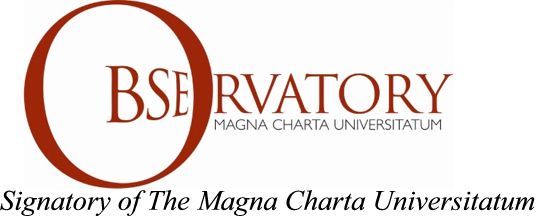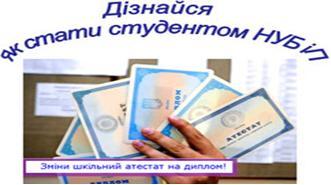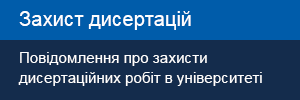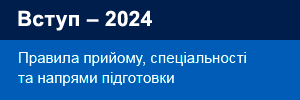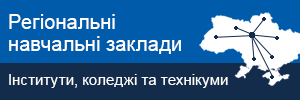Edition 3/2018, 28 September 2018   Rice production in Asia © Beboy │ Fotolia.com | IAMO Forum 2019 to focus on small farmsThe IAMO Forum 2019 is to take place in Halle (Saale), Germany, from 26 to 28 June. The topic of the conference is “Small farms in transition: How to stimulate inclusive growth?”. Farms less than two hectares of land in size produce one-third of the global food supply. Small farms are a catalyst of agricultural growth, a source of employment and a social safety net in the rural regions of many European and Asian transition economies. However, the future of subsistence farming, in particular, is uncertain. This is further exacerbated by the fact that agricultural policies tend to benefit medium-size and large farms and neglect non-agricultural rural employment. This will provide the background for the IAMO Forum 2019, which will highlight the interlinkages between small farm development and agricultural and public policies. The drivers and consequences will be debated from a social sciences perspective, including economics, political sciences, sociology, anthropology and history.
Papers in the form of extended abstracts and proposals for organised sessions can be submitted from 1 November 2018. The regional focus should lie primarily on Europe, Central Asia and China.
IAMO Forum 2019
Small farms in transition: How to stimulate inclusive growth?
26 - 28 June 2019 | IAMO, Halle (Saale) │ Germany
www.iamo.de/forum/2019
#iamoForum19
Contact:
Anna Feshchenko
Tel.: +49 345 2928-101
[email protected] |
 OverviewFurthermore you will read in this edition:   Use of drones in agriculture © Ingo Bartussek │ Fotolia.com | Parliamentary evening on sustainable rural areasIAMO Director Alfons Balmann will be a podium guest at the Leibniz Association's Parliamentary Evening on “Sustainable rural areas” on 17 October 2018 in Berlin, Germany. Rural areas fulfil central functions for humanity, such as food production, regeneration and nature. Still the numbers of young people whom are moving to the cities are constantly increasing, leaving entire regions emptied. The migration often leads to problems in health care, a lack of educational opportunities, the withdrawal of small and medium-sized enterprises, the loss of jobs and even poverty. At the Parliamentary Evening, scientists from various Leibniz institutes and members of the German Bundestag will discuss which offers, measures and instruments can help to stop the migration from rural areas and make the regions more attractive again.
Parliamentary Evening of the Leibniz Association
Sustainable Rural Areas (in German only)
17 October 2018 | Leibniz Association, Berlin │ Germany
Contact:
Axel Rückemann
Tel.: +49 30 202649-46
[email protected]
back to overview |
  Tashkent Institute of Irrigation and Agricultural Mechanization Engineers (TIIAME), Uzbekistan © TIIAME | Conference on the importance of social sciences in agricultural developmentIn cooperation with the Tashkent Institute of Irrigation and Agricultural Mechanization Engineers (TIIAME), IAMO is organising a conference to take place from 30 October to 1 November 2018 in Tashkent, Uzbekistan, on the topic of “Social science knowledge and sustainable agricultural development along the Silk Road”. In addition to natural sciences and engineering, the social and economic sciences play a key role in shaping collective decisions by pointing to facts, processing empirical and theoretical knowledge and identifying options for action. Therefore, the conference aims at stimulating the academic environment for social sciences in agricultural development in Central Asia, combining international knowledge with cutting-edge research and higher education, and presenting the results of a series of ongoing research projects. The event is supported financially by the Volkswagen Foundation as part of the project “Institutional change in land and labour relations of Central Asia’s irrigated agriculture” (AGRICHANGE).
Conference
Social science knowledge and sustainable agricultural development along the Silk Road
30 October – 1 November 2018 │ Tashkent │ Uzbekistan
Contact:
Nodir Djanibekov
Tel.: +49 345 2928-128
[email protected]
back to overview |
  Pig breeding © oyoo │ Fotolia.com | Expert panel on the challenges of exporting pork to RussiaUnder the title “Trends in global pork markets in light of the Russian import ban”, IAMO, together with the German Agribusiness Alliance, is organising an expert panel to be held on 16 November 2018 at the EuroTier 2018 in Hanover, Germany. The Russian government has implemented import substitution policies in the agricultural sector with the aim of achieving food self-sufficiency both in terms of agricultural products and processed foods. They moreover aim to make the Russian agricultural sector one of the world's largest exporters of agricultural products and a global player in international agricultural trade. The expert panel of this year's EuroTier will see Olga Kylina from LL.M. temperi legal services, Wolfgang Etzl from Big Dutchman International GmbH and IAMO researcher Linde Götz build on these topics and discuss the possibilities and challenges surrounding the export of pork to Russia and China.
EuroTier 2018
Trends in global pork markets in light of the Russian import ban (in German only)
16 November 2018 | Fair grounds Hanover │ Germany
www.eurotier.com
Contact:
Linde Götz
Tel.: +49 345 2928-327
[email protected]
back to overview |
  View of the capital Dushanbe, Tajikistan © truba71 │ Fotolia.com | Development of a model for the analysis of the agricultural sector in TajikistanFrom April to October 2018, IAMO and HFFA Research GmbH have been working together with the Tajik Office of the Deutschen Gesellschaft für Internationale Zusammenarbeit (GIZ) on the project “Development of a tool for analyses of agricultural sector of Tajikistan” (TAAST). An instrument, or more precisely a model, will be developed to facilitate agricultural sector analysis in Tajikistan and support the work of the Ministry of Economic Development and Trade (MoEDT) and the Ministry of Agriculture (MoA). Policy makers wish to use it to improve competitiveness, increase the income and economic performance of producers in selected value chains, and thus contribute to overall sustainable economic development. The Tajik partners will participate in the development of the model and receive training to carry out their own analyses after completion of the project. The model is being developed as part of the “Towards rural inclusive growth and economic resilience” (TRIGGER) program of the GIZ office in Tajikistan.
Contact:
Ihtiyor Bobojonov
Tel.: +49 345 2928-247
[email protected]
back to overview |
  Insurance experiments in Kyrgyzstan © IAMO | Development of index-based drought insurance in Central AsiaFrom 15 to 25 July 2018, IAMO researchers Ihtiyor Bobojonov, Lena Kuhn and Laura Moritz conducted insurance experiments and focus group discussions in Kyrgyzstan as part of the project “Increasing climate resilience via agricultural insurance – Innovation transfer for sustainable rural development in Central Asia” (KlimALEZ). To gain insight into the understanding and needs of local producers for index-based drought insurance for wheat production, the researchers met with Kyrgyz farmers. As risk management tool in the form of agricultural insurance does not yet exist in the region, farmers quickly became interested in the topic. The research team at IAMO, together with the Humboldt-Universität zu Berlin and Kyrgyz and German insurance companies, aims to develop innovative insurance products for the Central Asian agricultural sector and, thereby, increase resilience to climate risks, especially droughts. The project KlimALEZ is funded by the German Federal Ministry of Education and Research (BMBF).
Contact:
Lena Kuhn
Tel.: +49 345 2928-323
[email protected]
back to overview |
  International conference in Uzbekistan © IAMO | Improving sustainable research capacities in UzbekistanSince September 2018, IAMO researcher Ihtiyor Bobojonov has been working on an “Innovative Pilot Program on the Re-Integration of Scientists to Central Asia: Research and Capacity Building on Food Chains under Climate Change” (IPReS). By transforming and internationalising higher education and research systems, sustainable research capacities can be developed and improved in Central Asian countries. Although several restructuring processes have been carried out in recent years, current research capacities are not yet in line with international standards. Within the project, new approaches towards the internationalisation of national research systems and the reintegration of high-ranking scientists in Uzbekistan will be examined. The four-year pilot project will be carried out in cooperation with the Tashkent State Agrarian University (TDAU), Uzbekistan. The project is financially supported by the Volkswagen Foundation.
Contact:
Ihtiyor Bobojonov
Tel.: +49 345 2928-247
[email protected]
back to overview |
  Social comparisons in Thailand © THANANIT and DN6 │ Fotolia.com | Perceptions of inequality through social comparisons in ThailandStarting in January 2019, a new IAMO project will begin on the topic of “Perceptions of inequality through social comparisons and transference on subjective wellbeing: a micro perspective on reference groups”. When it comes to social comparison, inequality is perceived individually and in relation to others. The aim of the research project is to look at the delineation of reference groups for social comparisons and to develop a methodological framework for defining them. Here, Thailand serves as a case study to examine the composition of individual reference groups within the subjective inequality-wellbeing nexus. The emerging economy is plagued by severe forms of inequality and is, at the same time, a highly collectivist society in which every action is judged by the peer group. The project will be jointly led by Judith Möllers, IAMO, and Gertrud Buchenrieder, Universität der Bundeswehr (UniBW) Munich and Martin Luther University (MLU) Halle-Wittenberg, Germany. Other partners in this project include Kasetsart University in Bangkok, Thailand, and the University of East Anglia, UK. The three-year project is funded by the German Research Foundation (DFG).
Contact:
Thomas Dufhues
Tel.: +49 345 2928-116
[email protected]
back to overview |
 | Optimised data collection at IAMOWith the improved management of its ERP system and the complete revision of its Research Information System (FIS), IAMO has optimised the collection of its data in research and administration.
At the beginning of September 2018, IAMO and the Merseburg University of Applied Sciences, Germany, launched a cooperative project entitled “Scientific monitoring of the ERP system” (ERPIAMO). The project aims to scientifically monitor the further operation and expansion of the ERP system (Enterprise Resource Planning) at IAMO. The focus is on the systematic analysis of requirements management, provider and software selection, implementation, process optimisation and documentation.
IAMO’s new Research Information System (FIS) has been operational since September 2018. The system centrally documents the research activities of the institute and compiles them in the form of various statistics in compliance with the requirements of the reporting system. The collected data includes publications, teaching activities, business travel and participation in events. At the same time, bibliographic information on publications and lectures from the FIS is exported to the institute's website.
Contact ERPIAMO:
Stephanie Garling
Tel.: +49 345 2928-410
[email protected]
Contact FIS:
Christian Drondorf
Tel.: +49 345 2928-439
[email protected]
back to overview |
  IAMO Policy Brief 34 | IAMO Policy Brief 34In July 2018, Ulrich Koester, Yanjun Ren and Jens-Peter Loy published the IAMO Policy Brief 34 entitled “Measurement and reduction of food loss and waste – reconsidered”. According to the Food and Agriculture Organization of the United Nations (FAO), one third of all food is lost or wasted as it moves from production to consumption. The high priority of the topic has led to a large number of individual studies, which, however, use very different methodologies to quantify the extent of food waste and neglect to take into account the costs and risks of reducing waste. A recent publication has taken up the methodological problem (Bellamare et al. 2017). The authors of the IAMO Policy Brief 34 investigate whether the proposed methodology solves the problem and can contribute to designing a rational policy to manage food loss and waste (FLW).
Contact:
Ulrich Koester
Tel.: +49 431 880-4436
[email protected]
back to overview |
  IAMO Policy Brief 35 | IAMO Policy Brief 35In view of the long-lasting period of drought in Germany, Lena Kuhn, Ihtiyor Bobojonov and IAMO Director Thomas Glauben published the IAMO Policy Brief 35 in August 2018 on “Agriculture in times of drought: How digitalisation can support sustainable risk management”. Agribusinesses are particularly affected by the continuing heat and the lack of precipitation. Compared with the previous year, harvest losses in agriculture are estimated at around 10 percent per hectare. Although this issue has only recently become the focus of public awareness in Germany, farmers in Eastern Europe and Central Asia have been suffering from droughts for many years now. The publication discusses the extent to which innovative tools and digitalization can provide options for sustainable climate risk management in agriculture.
Contact:
Lena Kuhn
Tel.: +49 345 2928-323
[email protected]
Would you like to receive future IAMO Policy Briefs by e-mail or (mail)? Then please subscribe to our online order form.
back to overview |
  Participants of the SURE-Farm meeting © IAMO | EventsOn 20 September 2018, the official opening of the “Pilot project for the sustainable internationalization of Ukrainian research structures in the context of the globalization of the Ukrainian food sector” (UaFoodTrade) took place in Kiev, Ukraine. The Kick-off meeting of UaFoodTrade project was organised by IAMO in cooperation with the Kyiv School of Economics (KSE) and with the financial support of the German Federal Ministry of Education and Research (BMBF). +++ IAMO and the International Competence Center on Large Scale Agriculture (LaScalA) were partners of this year's Large Farm Management Conference held from 19 to 20 September 2018 in Kiev, Ukraine. The main organisers of the international conference entitled “Agribusiness 2018: AGRO or BUSINESS?” were the Ukrainian Agribusiness Club and the UCABevent Agency. +++ As part of the project “Towards sustainable and resilient EU farming systems” (SURE-Farm), the 3rd SURE-Farm Meeting was held at IAMO in Halle (Saale), Germany, from 18 to 19 September 2018. The event was supported by EU Horizon 2020. +++ On the topic of “Institutional economics and agricultural development”, a summer school was held in Bucharest, Romania, from 17 to 21 September 2018 as part of the project “Building an excellency network for heightening agricultural economic research and education in Romania” (ENHANCE). The research project receives financial support from the European Commission. +++ IAMO, in cooperation with the Institute of Scientific Research on Economic Reforms (ISRER) organised the BAKU Conference “Agriculture trade and foreign investments for sustainable regional integration in Caucasus and Central Asia” in Azerbaijan from 6 to 7 September 2018. The event was funded by the German Academic Exchange Service (DAAD). +++ At the IAMO Career Talk, former employees of the institute, Irina S. Dolgopolova, Doris Marquardt and Patrick Zier, talked about their career paths after graduation. The event took place for the second time at IAMO in Halle (Saale), Germany, on 30 August 2018. +++ On the topic of “Sustainability - enable, control and manage” the Science Management Network held a workshop in Dresden, Germany, on 29 June 2018. More than 20 participants from central Germany came together to discuss ways of responsibly organising research management.
back to overview |
  IAMO Director Alfons Balmann © IAMO | PersonaliaIAMO Director Alfons Balmann has been reappointed to the Scientific Advisory Board for Agricultural Policy, Food and Health Consumer Protection of the Federal Ministry of Food and Agriculture (BMEL) for another three years therm. +++ Martin Petrick was appointed a professor of agricultural, food and environmental policy at Justus Liebig University Gießen. He will start his duties with the upcoming winter term. +++ Giorgi Chezhia successfully defended his dissertation on “Oligopsony power in the Kazakh grain supply chain” at the Martin Luther University Halle-Wittenberg on 9 July 2018. The scientist was supervised by IAMO Director Thomas Glauben and Oleksandr Perekhozhuk in his research work in the department Agricultural Markets. +++ IAMO welcomes Max Hofmann as a research associate and Claudia Grützmacher in the secretariat of the department Structural Change as well as Julian Hörtzsch in the administration of the ERPIAMO project.
back to overview |
  Job © yurolaitsalbert │ Fotolia.com | VacanciesIAMO is looking for several PhD students (m/f) and a research assistant (m/f) for the IPReS project, a coordinator (m/f) of the IAMO Young Scientists Programme and a Post-Doc researcher (m/f) in the department Agricultural Policy. Furthermore, a janitor (m/f) and a guest relations manager (m/f) are needed to manage the institute building and the guest apartments. Detailed information on the vacancies can be found here.
back to overview |
 Publicationsall publications
IAMO Annual 2018
Download German
IAMO Policy Brief
Kuhn, L., Bobojonov, I., Glauben, T. (2018): Landwirtschaft in Zeiten der Dürre: Wie Digitalisierung ein nachhaltiges Risikomanagement unterstützen kann, Nr. 35, Halle (Saale). Download
Koester, U., Loy, J.-P., Ren, Y. (2018): Measurement and Reduction of Food Loss and Waste – Reconsidered, Nr. 34, Halle (Saale). Download
IAMO Discussion Paper
Petrick, M. (2018): A microeconomic model of worker motivation based on monetary and non-monetary incentives, IAMO Discussion Paper No. 175, Halle (Saale). Download
Kloss, M., Petrick, M. (2018): The productivity of family and hired labour in EU arable farming, IAMO Discussion Paper No. 174, Halle (Saale). Download
IAMO Studies on the Agricultural and Food Sector
Grau, A. (2018): Market power in the German dairy supply chain. Studies on the Agricultural and Food Sector in Transition Economies, Vol. 90, Halle (Saale). Download
Further selected publications
Ahmed, O. (2018): Vertical price transmission in the Egyptian tomato sector after the Arab Spring, Applied Economics, Vol. 50, No. 47, pp. 5092-5107. Download
Belyaeva, M., Bokusheva, R. (2018): Will climate change benefit or hurt Russian grain production? A statistical evidence from a panel approach, Climatic Change, Vol. 149, No. 2, pp. 205-217. Download
Burggraf, C., Teuber, R., Brosig, S., Meier, T. (2018): Review of a priori dietary quality indices in relation to their construction criteria, Nutrition Reviews, No. online. Download
Dara, A., Baumann, M., Kuemmerle, T., Pflugmacher, D., Rabe, A., Griffiths, P., Hölzel, N., Kamp, J., Freitag, M., Hostert, P. (2018): Mapping the timing of cropland abandonment and recultivation in northern Kazakhstan using annual Landsat time series, Remote Sensing of Environment, Vol. 213, pp. 49-60. Download
Epstein, D., Curtiss, J., Gagalyuk, T., Unay Gailhard, I. (2018): On resilience of agricultural enterprises in relation to external shocks and its factors, Ekonomist, Moskva, Nr. 7, S. 69-83.
Frings, M., Lakes, T., Müller, D., Khan, M. H., Epprecht, M., Kipruto, S., Galea, S., Gruebner, O. (2018): Modeling and mapping the burden of disease in Kenya, Scientific Reports, Vol. 8, pp. 1-9. Download
He, J. (2018): Harvest and trade of caterpillar mushroom (Ophiocordyceps sinensis) and the implications for sustainable use in the Tibet Region of Southwest China, Journal of Ethnopharmacology, Vol. 221, pp. 86-90. Download
Löw, F., Prishchepov, A., Waldner, F., Dubovyk, O., Akramkhanov, A., Biradar, C., Lamers, J. P. (2018): Mapping cropland abandonment in the Aral Sea Basin with MODIS time series, Remote Sensing, Vol. 10, No. 2, pp. 1-24. Download
Miao, L., Sun, Z., Cui, X., Veuthey, J. (2018): Wake up “boiling frogs”: a study on animal husbandry under climate change in Northern China, Environmental Earth Sciences, Vol. 77, No. 12, pp. 1-8. Download
Petrick, M., Kloss, M. (2018): Identifying Agricultural Factor Productivity from Micro-data: A Review of Approaches with an Application to EU Countries, German Journal of Agricultural Economics, Vol. 67, No. 2, pp. 67-79. Download
Piquer-Rodríguez, M., Baumann, M., Butsic, V., Gasparri, N. I., Gavier-Pizarro, G., Volante, J. N., Müller, D., Kuemmerle, T. (2018): The potential impact of economic policies on future land-use conversions in Argentina, Land Use Policy, Vol. 79, pp. 57-67. Download
Ren, Y., Zhang, Y., Loy, J.-P., Glauben, T. (2018): Food consumption among income classes and its response to changes in income distribution in rural China, China Agricultural Economic Review, Vol. 10, No. 3, pp. 406-424. Download
Sartas, M., Schut, M., Hermans, F., van Asten, P., Leeuwis, C. (2018): Effects of multi-stakeholder platforms on multi-stakeholder innovation networks: Implications for research for development interventions targeting innovations at scale, PLOS ONE, Vol. 13, No. 6. Download
Soliev, I., Wegerich, K., Akramova, I., Mukhamedova, N. (2018): Balancing the Discussion of Benefit Sharing in Transboundary Water Governance: Stressing the Long-Term Costs in an Empirical Example from Central Asia, International Journal of Water Governance, Vol. 6, pp. 19-42. Download
Tang, L., Zhou, J., Bobojonov, I., Zhang, Y., Glauben, T. (2018): Induce or reduce? The crowding-in effects of farmers’ perceptions of climate risk on chemical use in China, Climate Risk Management, Vol. 20, pp. 27-37. Download
Traikova, D., Möllers, J., Petrick, M. (2018): Go west? Emigration intentions of young Bulgarian agricultural specialists, Journal of Rural Studies, Vol. 62, pp. 134-145. Download
Valentinov, V. (2017): Wiener and Luhmann on feedback: from complexity to sustainability. Kybernetes: The International Journal of Systems, Cybernetics and Management Science 46 (3): 433-449. Download
Walder, P., Fintineru, G., Mann, S., Herzfeld, T., Wolz, A., Kantelhardt, J. (2018): Building an Excellency Network for Heightening Agricultural Economic Research and Education in Romania, in: Agrar- und Ernährungswirtschaft zwischen Ressourceneffizienz und gesellschaftlichen Erwartungen. Schriften der Gesellschaft für Wirtschafts- und Sozialwissenschaften des Landbaues e.V., Bd. 53, pp. 355-356.
Yu, C., Huang, X., Chen, H., Huang, G., Ni, S., Wright, J. S., Hall, J., Ciais, P., Zhang, J., Xiao, Y., Sun, Z., Wang, X., Yu, L. (2018): Assessing the impacts of extreme agricultural droughts in China under climate and socioeconomic changes, Earth’s Future, Vol. 6, No. 5, pp. 689-703. Download
back to overview   Webpage of the institute © IAMO | Next IAMO newsletter in DecemberCurrent reports from IAMO can be found in the next edition of the IAMO newsletter in December 2018, on our website www.iamo.de/en as well as on facebook and twitter.
back to overview |
 |



